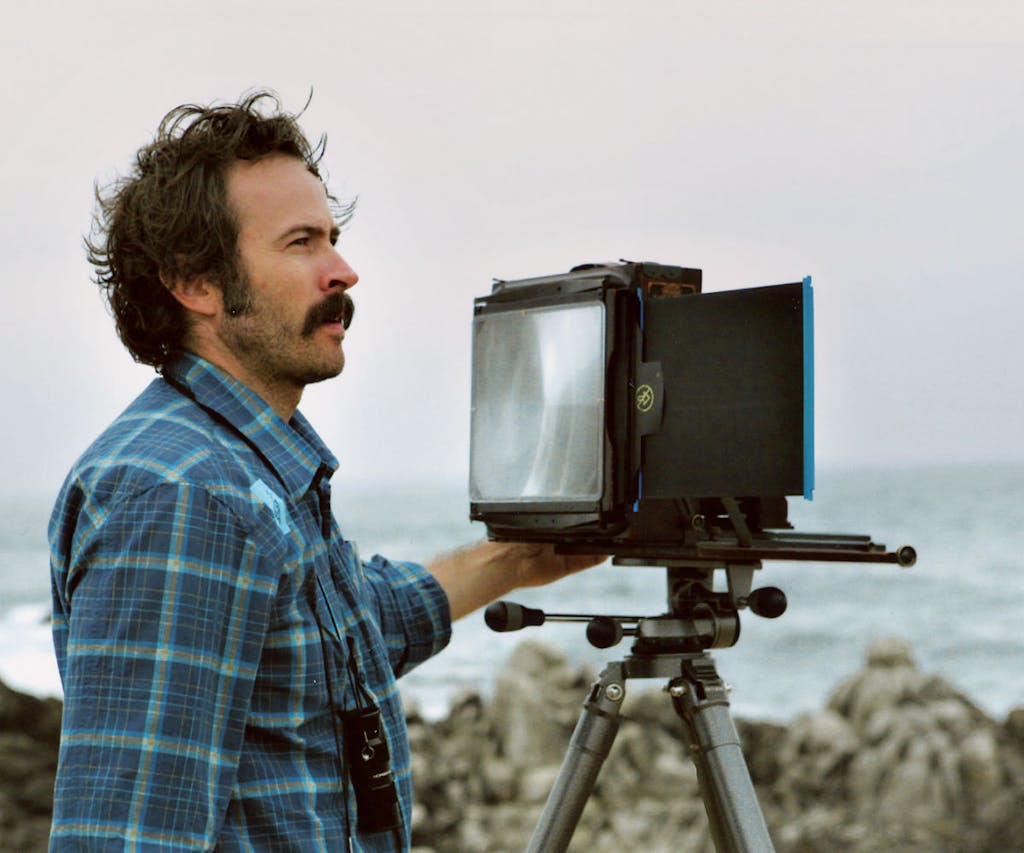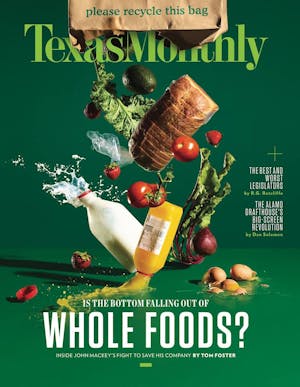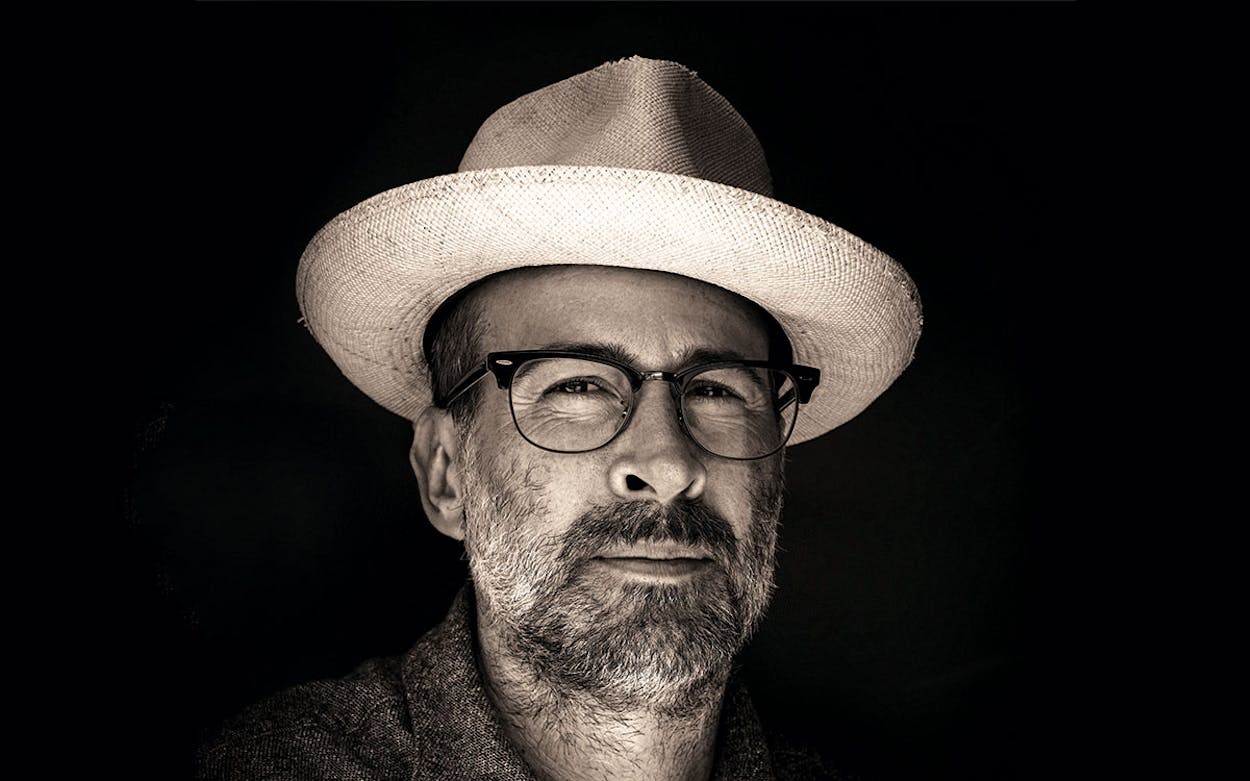First Jason Lee was a professional skateboarder. Then he was a professional actor: the titular character in the show My Name Is Earl, Dave from the Alvin and the Chipmunks movies, a star of Mallrats, Chasing Amy, Almost Famous. Then, in 2015, he made another change, moving his family from California to Denton. He rented space just off the town square and threw himself into his third career: old-school photography, with actual film. His new exhibit, “A Plain View,” is on display in Austin this month.
Michael J. Mooney: How did you get into photography?
Jason Lee: In the early skateboarding days, I was around a lot of skate photographers, but I was so immersed in skateboarding that my brain didn’t click on what they were doing. And that’s what ended up happening with acting—you’re doing your thing and then the crew is doing their thing. Until one day, on a set, I finally noticed the cameras. Then suddenly it was just, “These cameras are interesting.” And then I started talking to the camera guys—“What’s this light versus that light? What kind of film are you shooting?”—and as soon as my brain clicked, I was in 100 percent. Photography became my new skateboarding, and acting was something that was kind of happening on the periphery.
MJM: Really? That fast?
JL: Yeah. I come from skateboarding, which is a singular, very independent activity. Acting is fun, but from the very beginning, it felt like a business. An actor is essentially a slice of the bigger pie. So I started publishing my photos in magazines and I put out a book. It was a mini-retrospective done with a Texas-based magazine called Refueled. And then I started thinking about the next book. I knew I wanted to do something in Texas, because I live here now. So I spent, off and on, four months driving around the state.
MJM: Where’d you go?
JL: I basically did a loop from North Texas down underneath Houston, out to West Texas, always veering off on the farm-to-market roads. And then I went up into Amarillo and then way up into the Panhandle, which is stunning. And then back down to North Texas.
I spent most of my time in very quiet, empty, rural Texas. Even in towns that were still relatively put together, all you’d see is the occasional passing car or somebody pushing a stroller down the sidewalk or something like that. Surprisingly, a lot of these towns, even with restored town squares with the brick roads and beautiful old buildings, they’re empty at three in the afternoon. I think there are 3 people in the 297 exposures that I made.
MJM: Until you moved here, you were a lifelong California guy.
JL: You can’t buy land in California unless you’re a multi-multimillionaire. It’s astronomical, the prices. I have a lot of friends in Denton, so I’d visited here a few times, did projects with the Denton band Midlake. I shot a concert film for them at Dan’s Silver Leaf. I made a mini-documentary with them that accompanied one of their records.

MJM: That was before you moved here?
JL: Yep. And then I thought, “Let’s try it out. Let’s get some land and slow things down and just have a different experience.”
MJM: You got involved in the community pretty quickly.
JL: I’m one of five owners of Barley & Board, the brewpub on the town square. There are a lot of good people here, and it’s cool having neighbors who are completely different from me. It’s been nice shaking hands and working alongside my neighbors, literally borrowing tractor equipment and stuff like that.
MJM: In 2015 you moved to Texas, you’re not acting. Was it all one big reset?
JL: No, it was “Oh, we can downsize a little bit financially and just chill out maybe a little bit.” In a lot of ways it was also very spontaneous, which is in my nature, but which doesn’t always work out great all the time. Trying to keep that sense of adventure going, and just, “Let’s change it up.”
MJM: How long do you think you’ll stay?
JL: Who knows? But it’s been great. Coming here has been amazing in terms of slowing down, reflecting a little bit more. One thing I dig about Texas is there’s more of a religious presence here. What that does, I think, for people on the good side of faith and religion, is it creates a sense of family, a sense of humility, or at least a little bit of a sense of awareness of “Let’s live good lives if we can and help our neighbors.” Certain political things I’m not super-stoked about, though.
But I’ve found here that we’ve been able to be a bit more reflective about family—what are we doing with our lives, what are the priorities? It’s been really cool to just slow it down and have that time and that peace to figure things out.
[Note: after this interview was conducted, Lee told Texas Monthly that he is moving back to California at the end of the year.]
This interview has been edited for clarity and length.







